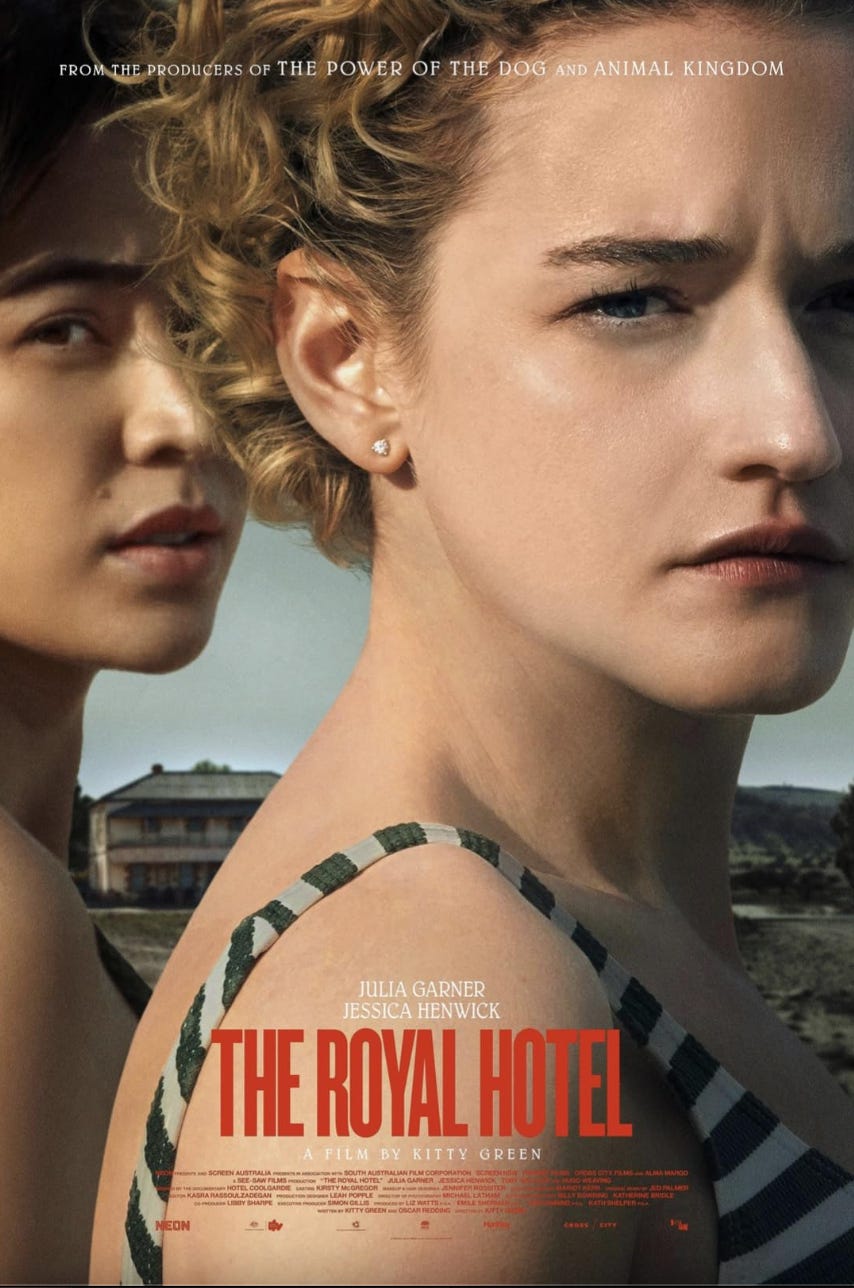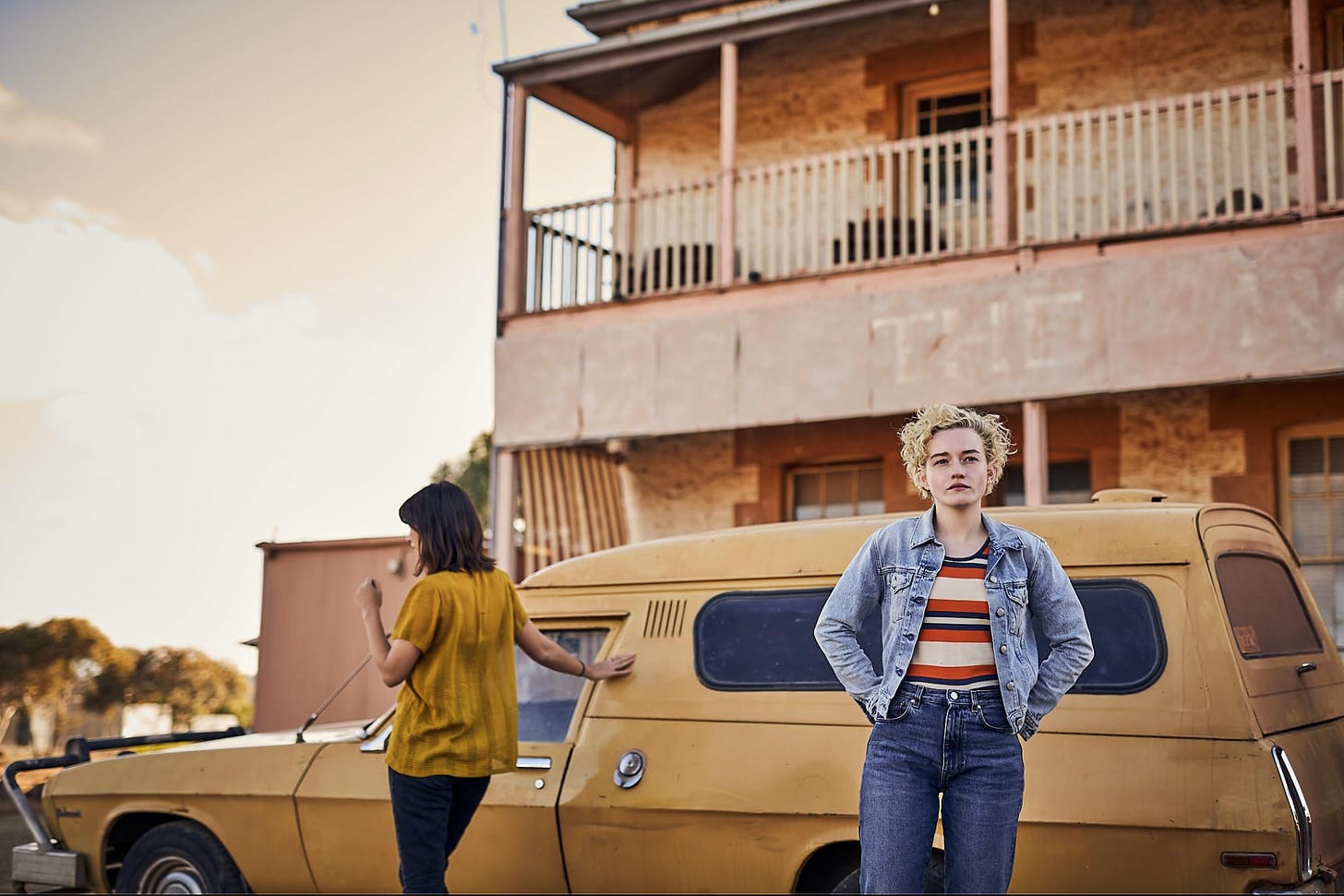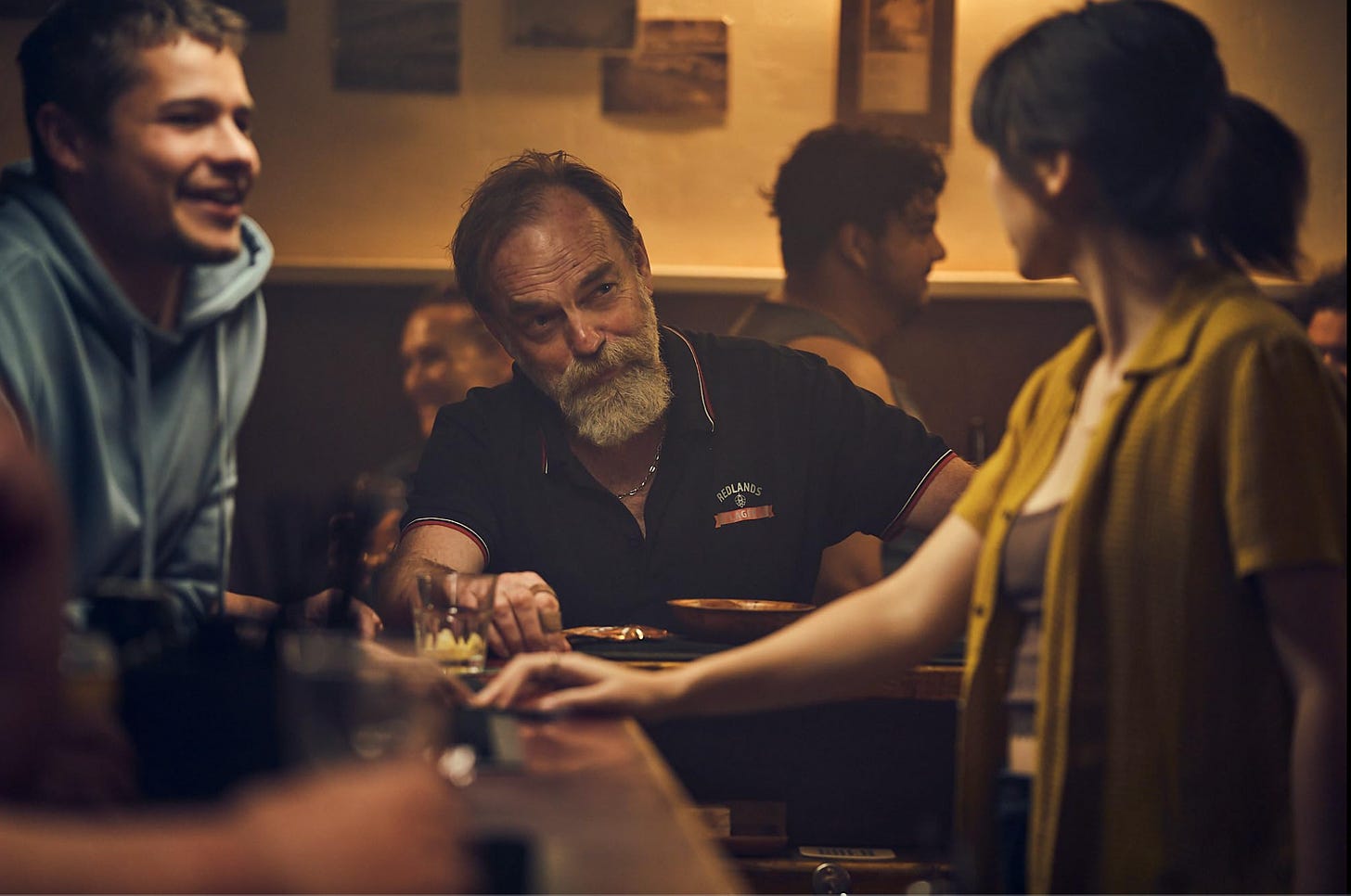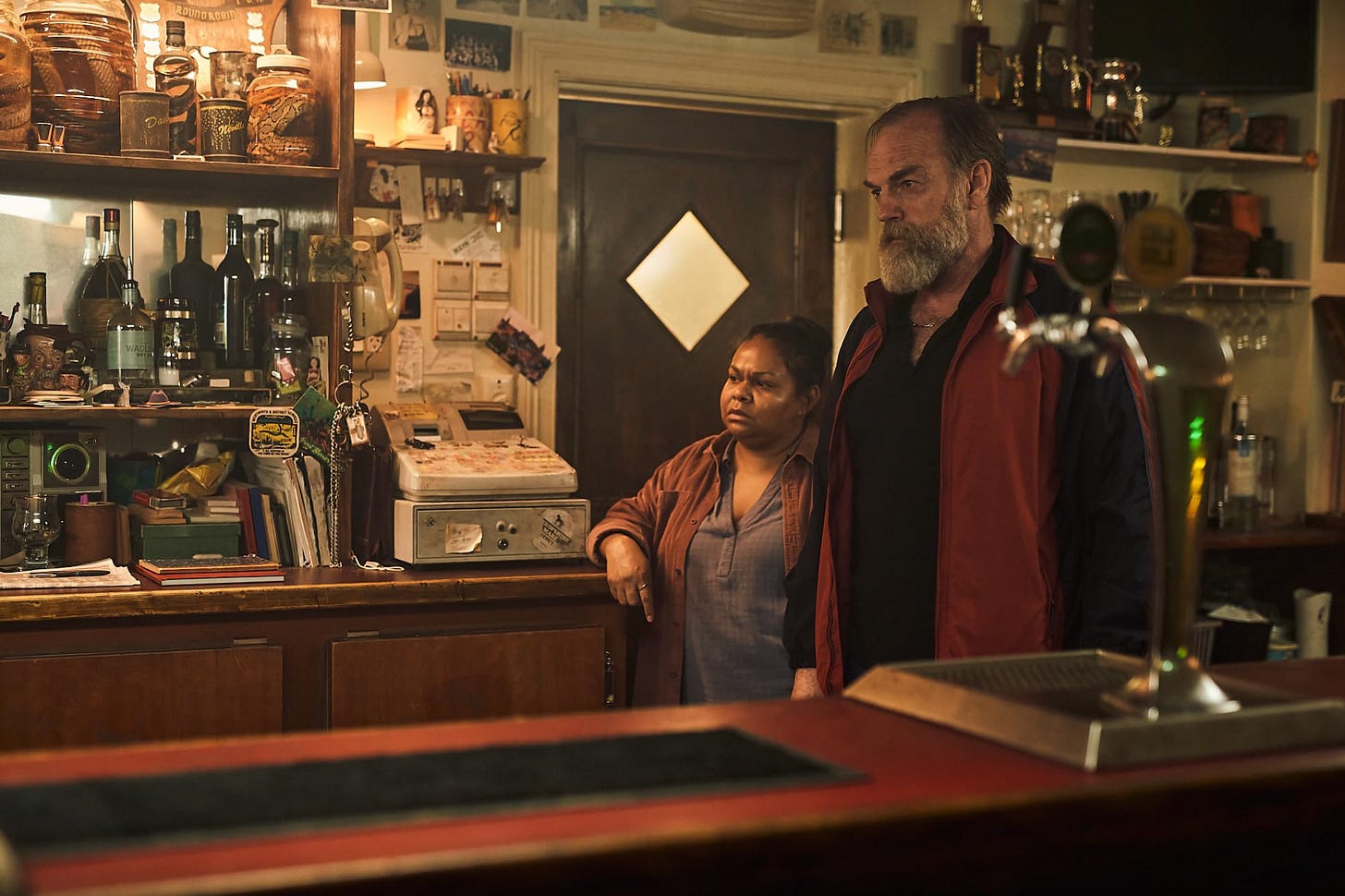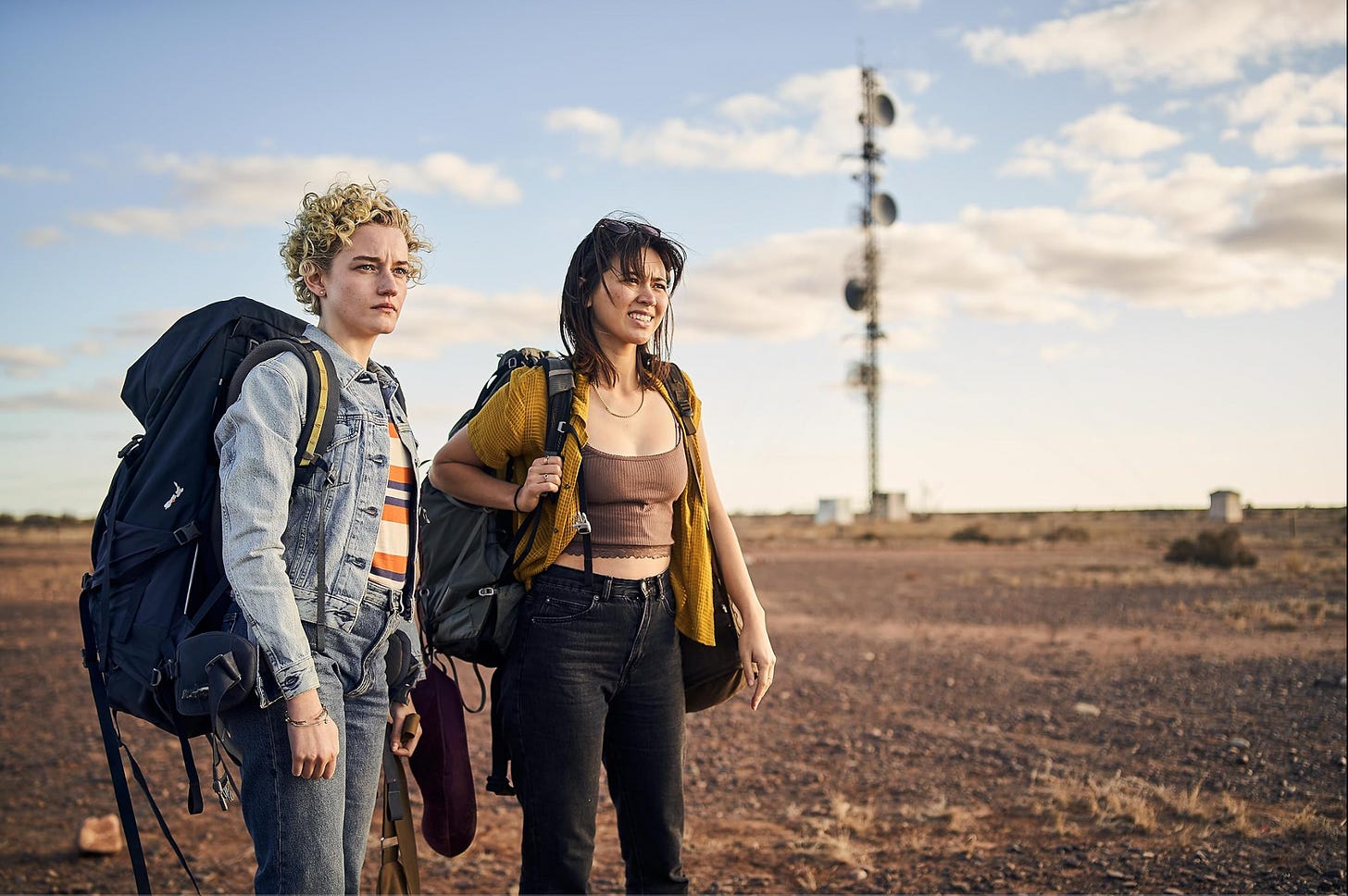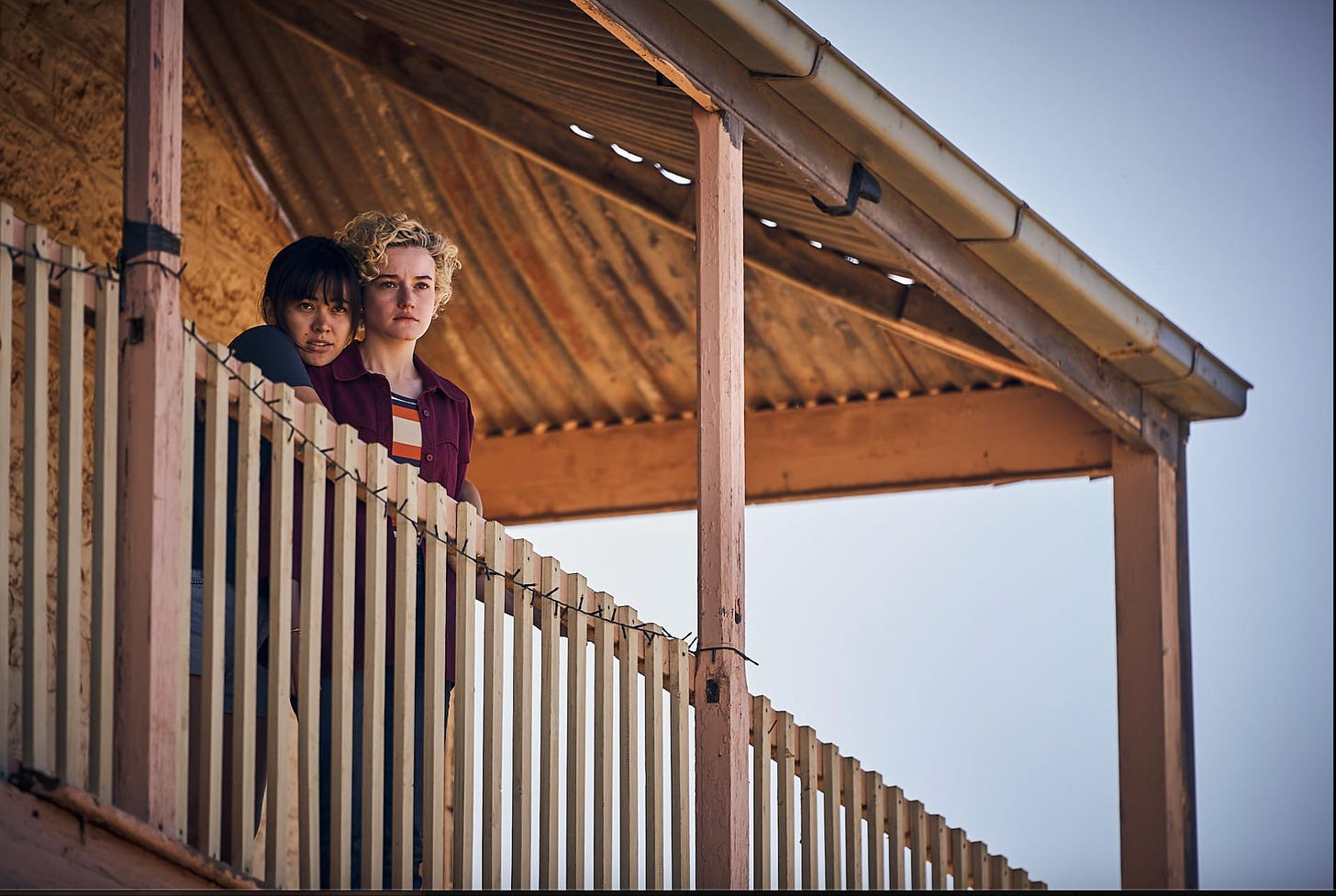Here’s a film that might have gone under your radar. I don’t ever recall a trailer for this one and I only thought to get tickets because of a random film TikTok’s recommendation. It’s a weird one that’s likely to go down as one of those critic darlings that polarizes casual audiences.
Writer and director Kitty Green pairs up with Julia Garner (you may know her from Ozark) again to bring what many might call a slow-burn psychological thriller. If there’s a single word that sums up the vibe of this movie it’s uncomfortable. The story revolves around two friends traveling abroad in Australia who run out of money and take the first work-and-travel job they can find: tending a bar in Australia's most remote mining area.
Now you might read that and think, “Hey wait a minute, bartending in the rural countryside of a foreign nation that’s frequented by lonely miners? That sounds like a pretty sketchy gig for a couple of girls…” Astute observation. Green’s film explores the thin line between bar banter and harassment while keeping its cards close. Our two travelers, Hanna (Garner) and Liv (Jessica Henwick), are warned by the work-and-travel agent that they may need to put up with “male attention.” By the film's end, it would be like if you told Nick Chubb on Week 2 that he might experience some “knee pain.”
Since the line between a funny joke and one gone afar is blurry, so are our characters’ moral compasses. Green’s ability to film mundane sequences while keeping the tone eerie and tilted is second to none. The pace of the film also helps bring this out. At first, there’s crude laughter, but that lingering sense of something not being right never quite leaves, and there’s one scene in particular when someone asking for a drink feels as if we’re teetering on the edge of life-or-death danger.
Of course, the owners of the bar aren’t much of a help, and I really, really enjoyed both performances from husband-and-wife proprietors Hugo Weaving and Ursula Yovich. Weaving’s character Billy is a mess of a drunk whose habit perpetuates a sort of anything-goes mentality of its customers. Yovich’s character Carol (Billy’s wife) has a clear understanding of the degeneracy of The Royal Hotel’s drinkers, but lacks any clear ability or desire to change it. There’s a hint that the remoteness contributes in a way because at the end of the day, is she supposed to tell economically depressed miners that they need to keep it a little more PG-13?
Of course, that’s exactly the issue that The Royal Hotel represents. A grimy dive bar, but also a physical symbol of a perpetual cycle of inappropriate and sometimes even abusive behavior because of how things have always been. It’s a fear of looking behind the darkest crevices of this aging pub. Why start cleaning up when there’s more liquor in that bottle?
While The Royal Hotel kept my eyes glued to the screen for a relatively short 91 minutes, I couldn’t help but feel that there was something missing. I can’t quite say what that specific thing is, but maybe an extra twenty minutes of runtime would have helped. One element that works both in favor and disfavor for the film is the blurred intentions of Hanna and Liv’s male companions. It’s clearly intentional of Green to hide the extent to how corrupted they are, but it also keeps the audience in the dark about what exactly to make of them. Of course, maybe that’s ultimately up to us, but it’s hard to tell if some characters are immature assholes or straight-up psychopaths.
It also feels like The Royal Hotel really missed an opportunity to use the barren Australian landscape as well. It’s obviously shown but never feels more than just a backdrop. Not that every movie or show should be held up to this standard but take Breaking Bad (2008-2013) to better illustrate my point. The New Mexico desert is constantly shown but never because it’s just simply there. Framing, blocking, and positioning allow the landscape to almost become a character itself, or a force that allows the narrative and themes to work on multiple different layers. Of course, Breaking Bad is a masterclass at visual storytelling, so it’s not that The Royal Hotel should be matching this, but I must admit a stronger focus would have helped
What really stands out the most and easily makes the tone of The Royal Hotel so effective is the natural chemistry between Garner and Henwick. They really feel as if they’ve been longtime friends and it permeates into the entire cast of characters, both friends and foes.
Garner’s writing and directing dives headfirst into hyper-realism where it’s hard to tell who’s a threat and who’s a joke. Most of these characters are clearly morally dubious, but many of them are also pretty pitiful. Whether it’s the owner of the bar drunkenly falling face first in front of customers or a charisma that comes off more as desperation, the cringe factor is cranked up to eleven.
Sometimes that tone gets a little tiring and you just want one character to root for or at least confirmation that you’re even meant to root for them. But everything - whether it’s something I loved or something that bothered me - feels deliberate and necessary to the subtext of the film. At the end of the day, that’s all I am really asking for with these indie films. It should be interesting to see what Green cooks up next.
Final Thought:
7.4




